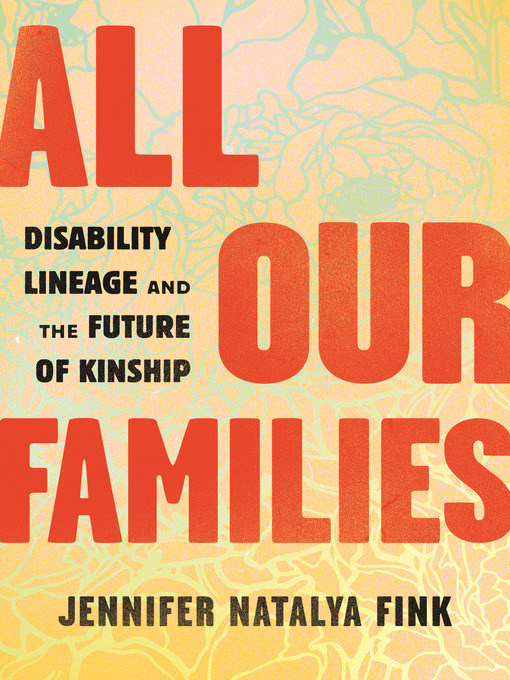- Popular Magazines
- Home & Garden
- News & Politics
- Food & Wine
- Celebrity
- Outdoor & Travel
- Art & Architecture
- Business & Finance
- Crafts
- Family & Parenting
- Boating & Aviation
- Science
- Photography
- See all magazines collections
Disability is often described as a tragedy, a crisis, or an aberration, though 1 in 5 people worldwide have a disability. Why is this common human experience rendered exceptional? In All Our Families, disability studies scholar Jennifer Natalya Fink argues that this originates in our families. When we cut a disabled member out of the family story, disability remains a trauma as opposed to a shared and ordinary experience. This makes disability and its diagnosis traumatic and exceptional.
Weaving together stories of members of her own family with sociohistorical research, Fink illustrates how the eradication of disabled people from family narratives is rooted in racist, misogynistic, and antisemitic sorting systems inherited from Nazis. By examining the rhetoric of genetic testing, she shows that a fear of disability begins before a child is even born and that a fear of disability is, fundamentally, a fear of care. Fink analyzes our racist and sexist care systems, exposing their inequities as a source of stigmatizing ableism.
Inspired by queer and critical race theory, Fink calls for a lineage of disability: a reclamation of disability as a history, a culture, and an identity. Such a lineage offers a means of seeing disability in the context of a collective sense of belonging, as cause for celebration, and is a call for a radical reimagining of carework and kinship. All Our Families challenges us to re-lineate disability within the family as a means of repair toward a more inclusive and flexible structure of care and community.
-
Creators
-
Publisher
-
Release date
March 22, 2022 -
Formats
-
Kindle Book
-
OverDrive Read
- ISBN: 9780807003978
-
EPUB ebook
- ISBN: 9780807003978
- File size: 4446 KB
-
-
Languages
- English
-
Reviews
-
Booklist
February 1, 2022
Disability within families is a crucial topic that still carries taboos. This ends up causing harm, divisions, and pain, as Fink outlines here. The mother of a disabled child, she recounts that she had several cousins with Down syndrome who were written out of the family story, something she refers to as de-lineation. The author's Jewish background also informs a significant part of her discussions about disability as well as the sorting and segregation that came about from dehumanizing Nazi culture and the Holocaust. She further explores the roots of American models of racial segregation and white supremacy that contributed to ableism. Highlighting intersections of gender, race, class, and queerness, the author also addresses how disability issues have affected BIPOC communities. In addition to the junk science of ableism and the modern reclaiming of the term ""crip"" by disability activists, Fink grapples with the complexities of group homes as well as deinstitutionalization. This book is a necessary addition to both public and academic libraries and will greatly benefit readers who want to understand where the harmful sorting systems that continue to stigmatize disabled people emerged from.COPYRIGHT(2022) Booklist, ALL RIGHTS RESERVED.
-
Formats
- Kindle Book
- OverDrive Read
- EPUB ebook
subjects
Languages
- English
Loading
Why is availability limited?
×Availability can change throughout the month based on the library's budget. You can still place a hold on the title, and your hold will be automatically filled as soon as the title is available again.
The Kindle Book format for this title is not supported on:
×Read-along ebook
×The OverDrive Read format of this ebook has professional narration that plays while you read in your browser. Learn more here.

